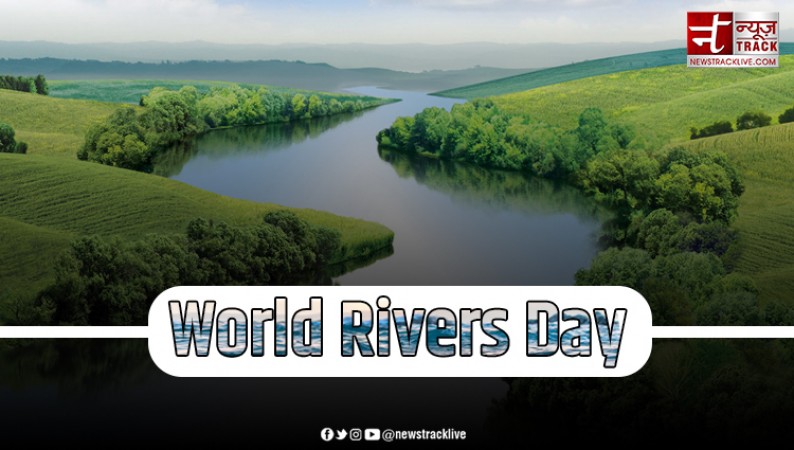
The lifeblood of human civilization has always been rivers. Every year, nations celebrate World Rivers Day on the fourth Sunday in September. The purpose of the day is to raise awareness of the value of rivers and the growing threat that climate change poses to rivers. World Rivers Day will fall on September 25 this year.
It is challenging to pinpoint the precise number of rivers in the world. Experts estimate that there are 165 significant rivers. These long, broad streams are filled with a lot of flowing water. There are 76 rivers that are more than 1,000 kilometres long. Some of the longest rivers in the world are:
Nile (4,135 miles long)
Amazon (3,980 miles long)
Yangtze (3,917 miles long)
Mississippi and Missouri (3,902 miles and the longest river system in North America)
Yenisei (3,445 miles long)
Yellow (3,398 miles long)
History:
The 2005 United Nations effort, "Water for Life Decade," led to the creation of World Rivers Day. The goal of the campaign is to raise public awareness of the importance of protecting our water supplies.
Following this, World Rivers Day was created as a result of a suggestion made by well-known river advocate Mark Angelo, who had already created a comparable local commemoration. Since the first World Rivers Day celebration, the holiday has been observed in more than 100 nations and attracted several million participants.
HOW TO Celebrate #WorldRiversDay?
On this day, a wide range of events is hosted by water conservation organisations, environmentalists, recycling societies, and many more. Some people organise an active and relaxing day to appreciate the river. Some organise more enlightening activities to inform the public about the value of rivers. Many others also spend the day sprucing up the area around a local river. To take part:
Host a cleanup party at a river in your community.
Spend the day at the river with family and friends.
Learn more about the world’s longest rivers and how they have helped shape history.
Have a contest with others to see who can name the most rivers.
Share a picture or video of your favourite river on social media with #WorldRiversDay.
Importance:
For centuries, rivers have been crucial to the development of civilization and human habitation. On the banks of significant rivers, the oldest settled human civilizations first appeared. The Sumerian civilization, which developed along the banks of the Tigris and Euphrates rivers, the Egyptian civilization along the Nile River, the civilization of the Indus Valley, which developed along the Indus River and its numerous tributaries, and the ancient Chinese civilizations, which developed along the Yangtze and Yellow rivers, are just a few examples.
Many of the major cities still have rivers running through them today. Some of the largest cities in the world were founded on river banks or in the vicinity of rivers. Nearly two billion people depend on rivers today for food, transportation, water, and jobs.
But numerous rivers and waterfronts have been severely polluted or ruined as a result of climate change and inadequate environmental safeguards. In a survey conducted in 2018, the Central Pollution Control Board (CPCB) found 351 contaminated river lengths in India alone.
Dhoni made a big announcement by coming live, told how to win the World Cup
'Won't tolerate Hijab protests,' woman journalist arrested for reporting Mahsa's death
Ebrahim Raisi: Nation must take decisive action in response to protests over custody deaths